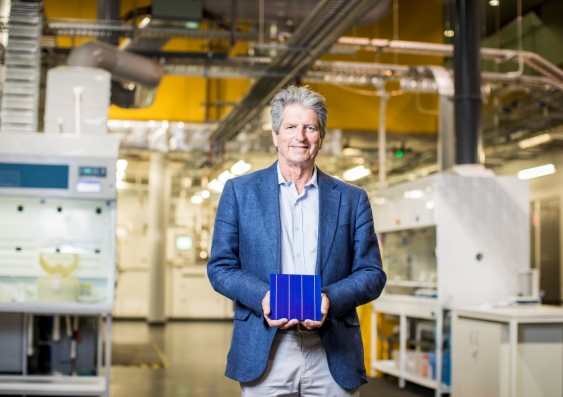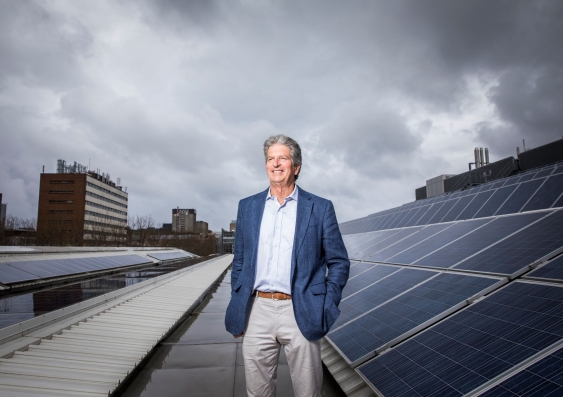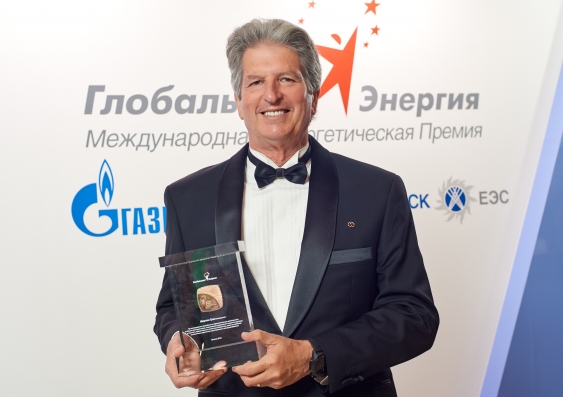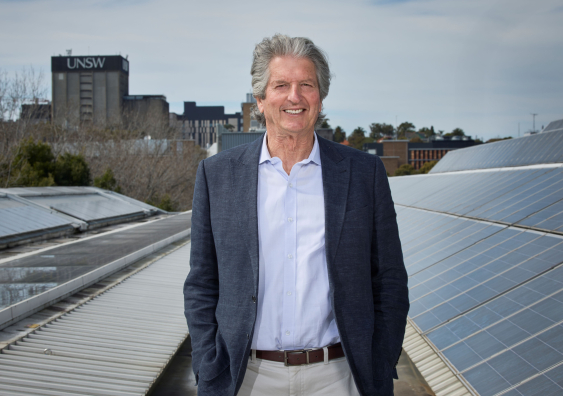Scientia Professor Martin Green is recognised with a major international honour for his outstanding achievements in solar photovoltaics and driving the global shift to renewables.
әЪБПНшҙуКВјЗ SydneyвҖҷs Scientia Professor Martin Green, known worldwide as the вҖңfather of modern photovoltaicsвҖқ, has received the Faraday Medal from the UKвҖҷs Institution of Engineering and Technology (IET) вҖ“ the organisationвҖҷs most prestigious honour. The medal recognises Prof. GreenвҖҷs outstanding achievements in transforming solar power from a prohibitively expensive and niche technology to the worldвҖҷs cheapest and most scalable source of electricity.
Prof. Green said it was a great honour to be awarded the Faraday Medal, arguably one of the worldвҖҷs top gongs for engineering.
вҖңThank you to the IET for this wonderful recognition. IвҖҷm exceptionally proud of the work my students, colleagues and I have accomplished throughout my 50 years at әЪБПНшҙуКВјЗ, and the achievements of everyone who has helped make solar energy the most practical and affordable weapon to combat global warming,вҖқ Prof. Green said.
вҖңIвҖҷm delighted to join the ranks of earlier medallists such as Oliver Heaviside, George Thomson, Rookes Crompton, Ernest Rutherford, William Bragg, Irving Langmuir and Nevill Mott вҖ” names that have populated my textbooks throughout my engineering career.вҖқ
әЪБПНшҙуКВјЗ Dean of Engineering Professor Julien Epps congratulated Prof. Green on his selection for the Medal.
вҖңThrough five decades of his own research, mentorship of students and colleagues and collaboration with industry to commercialise solar technology, Martin has been the constant driving force to deliver the worldвҖҷs lowest-cost energy source вҖ” a vital tool in the global fight against climate change.
вҖңThis award affirms his place among the greatest engineers and scientists of our time,вҖқ he said.
Maximising energy from the sunВ
Prof. Green led the әЪБПНшҙуКВјЗ teams that developed Passivated Emitter and Rear Cell (PERC) technology. PERC helpedВ increase the efficiency of standard solar cells by more than 50% from just 16.5% in the early 1980s to 25% in the early 2000s. His teamsвҖҷ innovations and advances in solar technology are considered instrumental in the global transition to renewable energy, with solar now the lowest-cost option for bulk electricity supply.
Prof. Green and his team were also the first to demonstrate and report on вҖҳTOPConвҖҷ (tunnel-oxide polysilicon contact) solar cells, and together with PERC, these cells account for more than 90% of the worldвҖҷs solar cells. Teams at әЪБПНшҙуКВјЗвҖҷs School of Photovoltaic and Renewable Energy Engineering and its Solar Industrial Research Facility (SIRF) continue to produce world-leading research on silicon cells, as well as investigating the next generation of solar technologies. В
Prof. Green believes their current research could boost cell efficiency to more than 40%.
вҖңSilicon cells are very good at converting red photons from sunlight but not so efficient at converting blue ones, since they waste a lot of their energy.
вҖңWe are working on stacking solar cells on top of each other, so they work in tandem to convert different parts of the solar spectrum into electricity.
вҖңSolar energy is already the cheapest electricity in history, but thereвҖҷs still enormous scope for improvement. IвҖҷm determined to make it even more affordable and accessible for everyone so we can accelerate the shift away from fossil fuels and create a healthier, more sustainable future for all.вҖқ
Prof. Green has previously been awarded the Japan Prize, Millennium Technology Prize, Global Energy Prize and the Queen Elizabeth Prize for Engineering, shared with three of his former students.
Media enquiries
For enquiries about this story and interview requests please contactВ Louise Templeton.
°Хұрұф:Мэ0413495994
·ЎіҫІ№ҫұұф:Мэlouise.templeton@unsw.edu.au
Related stories
-

Australian solar pioneers win world's top engineering prize
-

әЪБПНшҙуКВјЗ Sydney solar pioneer wins Europe's biggest technology innovation prize
-

Father of photovoltaics: әЪБПНшҙуКВјЗ solar expert awarded Global Energy Prize in Moscow
-

әЪБПНшҙуКВјЗ solar energy pioneer Martin Green shares $US3m scientific prize




.jpg)
